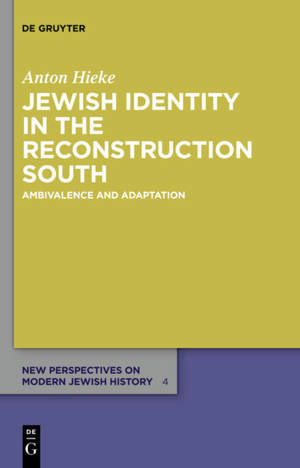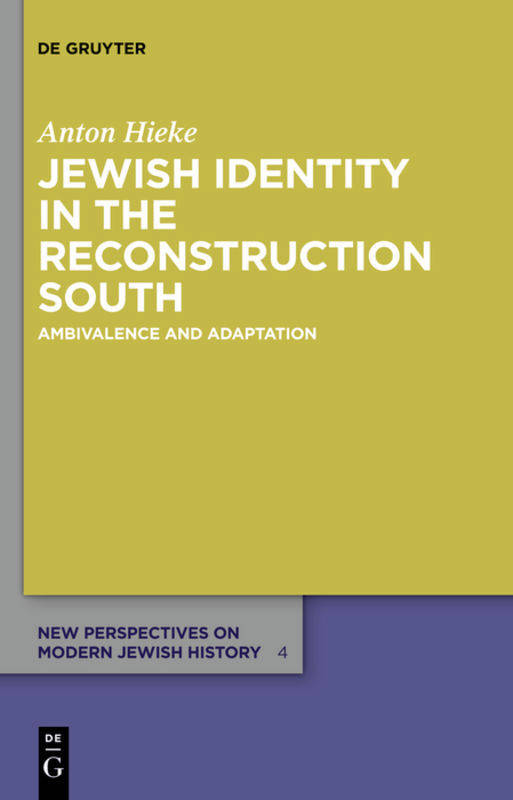
- Retrait gratuit dans votre magasin Club
- 7.000.000 titres dans notre catalogue
- Payer en toute sécurité
- Toujours un magasin près de chez vous
- Retrait gratuit dans votre magasin Club
- 7.000.0000 titres dans notre catalogue
- Payer en toute sécurité
- Toujours un magasin près de chez vous
Description
How far can Jewish life in the South during Reconstruction (1863-1877) be described as German in a period of American Jewry traditionally referred to as 'German Jewish' in historiography? To what extent were Jewish immigrants in the South acculturated to Southern identity and customs? Anton Hieke discusses the experience of Jewish immigrants in the Reconstruction South as exemplified by Georgia and the Carolinas. The book critically explores the shifting identities of German Jewish immigrants, their impact on congregational life, and of their identity as 'Southerners'. The author draws from demographic data of six thousand individuals representing the complete identifiable Jewish minority in Georgia, South and North Carolina from 1860 to 1880. Reconstruction, it is concluded, has to be seen as a formative period for the region's Jewish congregations and Reform Judaism. The study challenges existing views that are claiming German Jews were setting the standard for Jewish life in this period and were perceived as distinct from Jews of another background. Rather Hieke arrives at a conclusion that takes into consideration the migratory movement between North and South.
Spécifications
Parties prenantes
- Auteur(s) :
- Editeur:
Contenu
- Nombre de pages :
- 396
- Langue:
- Anglais
- Collection :
- Tome:
- n° 4
Caractéristiques
- EAN:
- 9783110277692
- Date de parution :
- 21-05-13
- Format:
- Livre relié
- Format numérique:
- Genaaid
- Dimensions :
- 156 mm x 234 mm
- Poids :
- 730 g

Les avis
Nous publions uniquement les avis qui respectent les conditions requises. Consultez nos conditions pour les avis.






